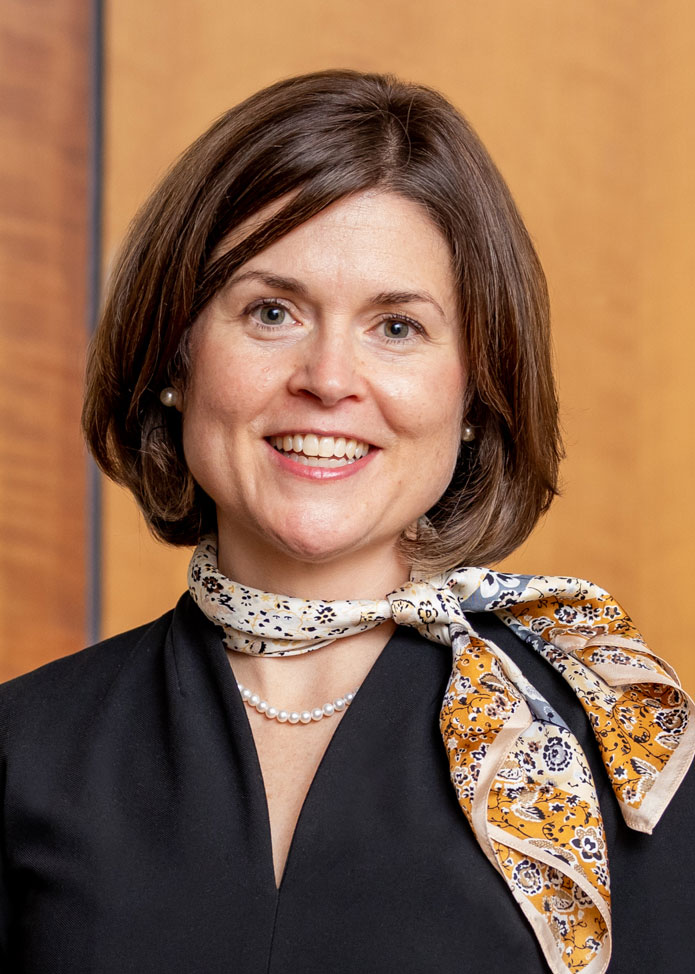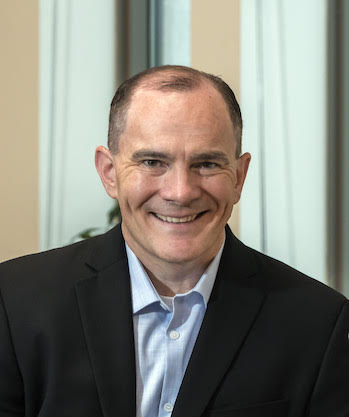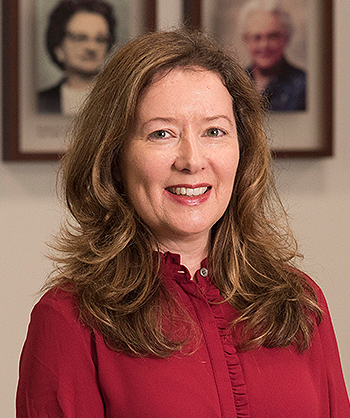

By Katherine E. Gregory
Dean, Connell School of Nursing
Across the country, new nurses are stepping into a field that is both deeply rewarding and increasingly strained. Our aging population needs more care. Health systems are stretched thin. And yet, just as the demand for highly educated nurses reaches an all-time high, the very system that prepares them—American higher education—is under serious threat.
Colleges and universities are closing or consolidating. Resources are shrinking. Funding is drying up. At the very moment when our country needs more nurses, the pipeline is buckling.
This tension reminds us that higher education is far more than a personal path to a career. It is a public good. A college degree—especially in fields like nursing—ripples outward: improving the lives of families, strengthening communities, and building a more resilient society. It’s one of the best investments we can make—for ourselves, and also for each other.

Dean Katherine E. Gregory
Think about it. The nurse who sits beside you during your first round of chemotherapy, explaining each step with kindness and empathy—that didn’t happen by chance. That moment was shaped by coursework in communication, coping skills, and evidence-based practice. The nurse who notices a subtle change in your breathing and acts before a crisis unfolds? That instinct was honed by hours of study in pathophysiology and clinical reasoning.
Over the past century, nursing education has moved from hospital-based training into colleges and universities—a shift formalized by the American Nurses Association in 1965. The impact has been profound. Studies consistently show that patients fare better in hospitals where nurses hold a bachelor’s degree or higher: lower mortality rates, fewer complications, and higher standards of care.
But degrees tell only part of the story. As nursing has evolved into a rigorous applied science—a core part of the STEM fields—it now requires the full depth and infrastructure of higher education. This includes classrooms, high-fidelity simulation labs, and real-world clinical placements. It’s an education shaped by coursework spanning the social and natural sciences, ethics, and evidence-based practice. It’s strengthened by the liberal arts, which foster dialogue, debate, and critical thinking. It’s sharpened through reflection and mentorship. The skilled, compassionate, patient-centered care you receive—all of that starts with, and is sustained by, education.
Today’s nursing students learn far more than how to take vital signs or administer medications. They pair practical skills with human-centered, scientifically grounded knowledge to better drive meaningful care. They learn to ask hard questions, listen intently, adapt quickly, prioritize ethically, and lead care teams in settings ranging from high-tech ICUs to home-based hospices. Their education develops both technical precision and human insight. And this learning depends not just on the strength and stability of American higher education but on access—often made possible through Pell Grants and Nursing Workforce Development Grants.
The care we count on—deeply personal and highly skilled—is made possible by a system we build and sustain together. When we invest in nursing education, and in higher education more broadly, we aren’t just preparing future nurses. We are safeguarding the health and dignity of every patient, every family, every community.
If we value nurses, we must invest in the system that prepares them.
Invest in education. Invest in nurses.
A new M.S. devoted to the ancient science and modern necessity of midwifery

Barry Family/Goldman Sachs Endowed Professor Christopher Lee co-authored an important guideline detailing how to manage cardiovascular disease risk before, during, and after noncardiac surgery. The joint guideline was released by the American Heart Association and the American College of Cardiology, and endorsed by seven other medical societies.

Professor Karen Lyons is the behavioral intervention development core co-leader of CONFIDE-ADRD, a new center at Massachusetts General Hospital that aims to develop, optimize, test, and implement dementia dyadic interventions to improve health and prevent negative outcomes.

Associate Professor Jinhee Park and Assistant Professor Brittney van de Water were inducted as fellows into the American Academy of Nursing, joining the field’s most accomplished leaders in policy, research, administration, practice, and academia.

The Academy of Forensic Nursing and The DAISY Foundation named Assistant Professor Victor Petreca a 2024 Forensic Nursing Scholar, one of its inaugural DAISY Nurse Leader Awards in Forensic Nursing.


